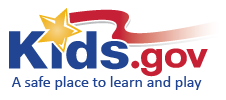- Kids.gov Home
- > Watch Videos
- > Our Videos
- > Oceanographer
Oceanographer
Date: July 12, 2012
Place: The National Ice Center, Washington DC
Interview: Pablo Clemente-Colon, Chief Scientist
Watch the Video in English
Video Transcript
My name is Pablo Clemente Colon. I'm serving as the chief scientist at the U.S. National Ice Center
Everytime I tell people that I'm a oceanographer, they start asking me about whales and fish and things like that and I tell them, “That's one type of oceanography.”
Once I started working with NOAA (National Oceanic and Atmospheric Administration), that's when I learned that, oh, there's these things called satellites and you could actually do satellite oceanography and look at the whole planet, any of the oceans.
We do use these satellites, which are sensors that are orbiting the earth in different manners to make observations of the planet. In this case, we're interested in sea ice cover observations or snow cover observations and they relay or send that data back to us, to some of our centers. We collect the data provided to analysts that look at it and makes an assessment of where the ice is.
The National Ice Center, we like to call it the NIC, is a tri-agency center manned by the U.S. Navy, NOAA, the National Oceanic and Atmospheric Administration and the U.S. Coast Guard. The NIC is charged with mapping sea ice and snow cover globally. So we basically look at the sea ice on a seasonal basis, from year-to-year, and also look at snow cover in both hemispheres (north and south of the equator).
One of the important aspects of deploying buoys on the ice is that they do provide us with information about the motion of the ice. So we track the ice with that data, but also they provide information about the atmospheric conditions (quality of the air), which are important to understand the development of the ice for example temperature, pressure.
Figure out what aspect of oceanography you may be more interested in and then go into a hard science first. It could be biology, it could be physics, it could be chemistry or geology, something fundamental. And then from there on, move on and apply oceanography study.




